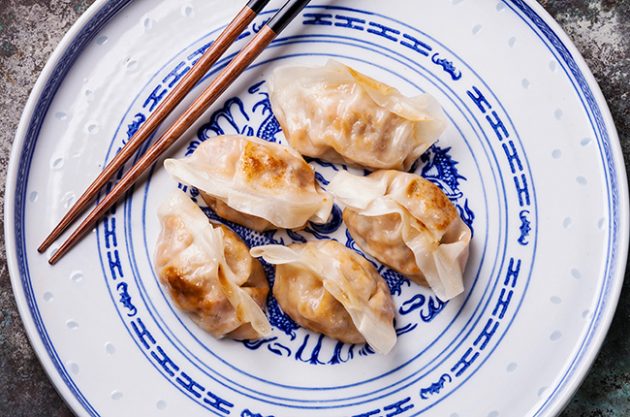
When speaking of dumplings (or in Chinese ‘Jiaozi’), we are actually talking about a variety of fillings and flavours – from jiucai (garlic chives) and pork dumplings, baicai (Chinese cabbages) and pork dumplings to seafood dumplings.
If you want to pair your dumplings with wine, it’s better to choose light-flavoured fillings.
The classic garlic, chive and pork dumplings, for example, are difficult to pair with wines due to their overpowering flavours.
Pork and cabbage, Sanxian (pork, prawn and eggs) and mushroom dumplings, on the other hand, are more delicate.
Take pork and cabbage dumplings as an example, the cabbage is quite creamy when it’s cooked, and pork is round on the edges.
I would pick a light and delicate white wine to go with it—I don’t think you want a red wine.
Try a wine that’s got a little oak on it with good acidity – I’d go for a nice Bourgogne Chardonnay, maybe a Mâcon.
What about the sauce?
In my house we make our own dumpling sauce. We use mainly soy sauce, with some brown Jiaozi vinegar, and some sesame oil on top. Some garlic and spice could also be nice.
This is the benefit of making your own sauce—you get to adjust your salts, sourness, and give it a little bit of roundness to achieve a nice balance.
It won’t be too difficult for you to find a pairing wine if you prefer a more savoury sauce.
But if you prefer only vinegar as the sauce, finding a wine match will be more difficult.
Try something with high acidity; Champagne could be a good option here.
By: Decanter Staff


